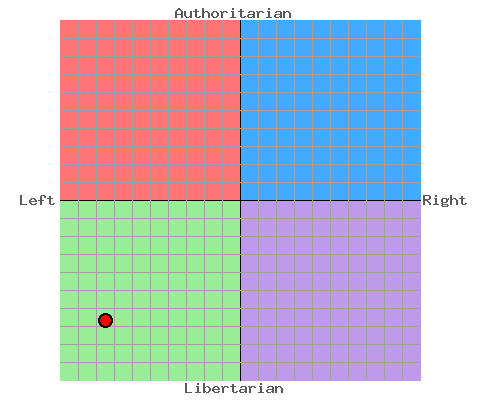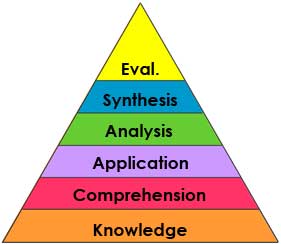Microtransactions: Breaking Stuff
April 24th, 2013
Breaking the News-Previews-Reviews Trinity
Thanks to the likes of Polygon and the collective efforts of Simon Parkin (I’m generalising, obviously, but these are two key examples), games journalism has made great strides over the past few years and “features” are now a significant part of most games press websites. Still, though, the uptake to long-form writing on a single game has been slow to say the least. Game-specific discussion pieces free writers from the cover-everything nature of reviews, allowing them to develop a voice and a style, assets which most games sites lack. I guess it’s up to bloggers like us to carry the torch for long-form games discussion.
Breaking the Tyranny that Publishers have over Players and Criticism
This paragraph was originally part of the preface to Rethinking Games Criticism: An Analysis of Wario Land 4.
Publishers are the dictators of the video games industry. Through trailers, controlled previews, planned leaks, media events, early access to review code, and “game journalists” who deliver PR straight from the horse’s mouth without scrutiny, publishers fuel the hype machine which sets the tone for the initial 4 months of a game’s release. The anticipation builds a near impenetrable wall of positive assumption of a games quality pre-release, which the majority of game reviewers do little to challenge. They either get caught up in it or just can’t overcome it individually—given their audience comes into a review expecting their opinions, shaped by the marketing, to be validated. This system, prolonged by DLC, traps players in a self-fulfilling cycle of purchases, which ensures continual cash flow for publishers. To discuss a game well past irrelevancy, like Wario Land 4, is therefore an act of rebellion, a move to show players an alternative to drip-fed corporate capitalism.
Freedom Vs Control
Freedom is an impenetrable beast. The positive associations of the word and the dominance of the American ideology, which ensures that said associations are always upheld, make it hard for someone to vouch for authorial control, but that’s what I’d like to do today. Freedom—as in absolute freedom, the kind that this heading is most concerned with—is destructive. You give too much freedom to a society and people will eat and rape each other. You give too much freedom to the markets and the financial institutions will rob the people of democracy. You give too much freedom to a player and they’ll choose the path of least resistance, thereby bypassing the education needed to develop their mastery of the game. Whether it be an open world game with a world so large that the designers can’t bend the landscape narrowly enough to ensure the player’s rigorously tested on the game mechanics or a strategy RPG where the player can customise their party to the point that they don’t have to play strategically, freedom can be a corrosive force in game design. Players, like students, need the guidance of a teacher before they can be let loose on their own. The more I think about, the more I believe restricted-to-freer practice is the only way to go when it comes to offering freedom in games. It seems that I haven’t finished with this idea just yet.
Microtransactions: With a Vengence
April 18th, 2013
About 4 years ago, I started a semi-regular series of articles called Microtransactions. In these posts, I’d compile comments that were too long for Twitter, but not long enough to warrant their own article. Given that I’ve built up a few notes over the past 2 years of writing this Wario Land book, and not all of them can amount to their own post, I figure that it’s time for me to resurrect this long-forgotten series.
Cooperatives in the Business Side of the Trigon Theory
As a democratic socialist, I’m big on cooperative enterprises. When the people who make or use the services or products of a business own the business (ie. democratic ownership), instead of working to maximise profit for shareholders, like most current, privately-owned businesses, the company works for its members and the betterment of its services or products. Richard Terrell’s trigon theory of games, which you can read about here or listen about here, assumes that business’s only interest is to maximise profit for shareholders. I’m curious then, if video game companies were owned by their developers or fan base, how would that change the theory. I’d say that it’d significantly weaken the influence that business has over games (as for cooperatives, profit is necessary to survive, but it’s not the core part of their business) while strengthening the art side (as the workers would be freed from the tyranny of concentrated power at the top).
Information as Cultural Capital
About a month ago, my partner asked me to watch an episode of Miranda with her. Miranda is a UK comedy show about a middle-aged lady, Miranda, and her friends running into all sorts of self-deprecating scenarios. I didn’t think much of the show, I don’t care much for TV, but the comedy reminded me of a growing trend that I’ve noticed.
Many of the jokes in Miranda are based on the clique language Miranda and her friends use within their tight-knit circle. In many instances, it’s as though they try to make a “thing” or a “scene” out of nothing, with pop culture associations as their tool of choice. This form of comedy, I feel, is indicative of the nature of information in this current age. Information is no longer something that you know and can learn from, it’s now a fashion, a form of cultural capital. If you know something about something then you have enough capital to pretend to others that you belong to a particular membership group, which can make one appear cultured or sophisticated. It’s kind of like hipster culture, but with words replacing dress.
Social media has certainly made this way of thinking increasingly more prevalent. These networks operate on two foundations: following others (cultural membership/tribalism) and knowledge as capital (short bursts of text being the primary unit of exchange). A lot of what goes on in social media, whether people like it or not, is the use of information to define one’s brand/place their brand amongst brands which are advantageous to them. Knowledge is often used as a commodity. The contents aren’t important. What’s important is what underlying assumptions come from the information. This is exactly what Miranda and friends do when they make up silly catch phrases and nonsense words. What they say isn’t important. What’s important is that what’s said has a certain fashion which creates comical associations.
Deep Reading – A Reason to go Offline?
March 1st, 2013
The internet is no place for sustained reading and deep thought.
That’s a strong statement, but it’s one that I feel increasingly adamant about. The form of a media determines the nature of its content, and there are aspects of the internet which dissuade the user from critical thinking. Of course, the internet is an umbrella for many different types of media. For the purpose of this post, I want to discuss the medium you are consuming right now: the article.
From early last year, I started doing most of my reading on my Kindle, a device which, I guess many Kindle enthusiasts would also attest to, has totally changed my reading habits. Almost straight away, I noticed that it was easier to read through my Kindle than through a web browser, as I’d been doing in the past. I’ve become a better reader ever since. After a bit of investigating, I discovered why. Online, long-form text is usually surrounded by:
- images
- hyperlinks
- ads
- video
- social media/comments
With all these distractions demanding your attention—not to mention things outside the browser, such as instant messages, software alerts, time displays, and the visual interface of the operating system—it’s difficult to engage with the text. On Kindle, all of these diversions are stripped away. The only thing that can cause you to lose your concentration is the progress bar at the bottom of the screen, which I can see some people fetishising over, but it’s relatively minor.
The other thing that diminishes the reader’s ability to deep read online is the transition between different types of media. Every time the reader switches between watching a video to writing a tweet to sending an email to reading an article, they must adapt to each format. There’s certainly a skill to juggling several kinds of media, but deep reading is no doubt something that becomes weakened in transition, particularly as the internet favours the most accessible, immediate media: images, video, short text, and search, none of which require committed engagement. When a reader approaches a long-form piece after having skim-read through Google, Wikipedia, and Twitter for the past half hour, despite their best intentions, they’re not in the right head space to consume the text.
Going forward, I am committed to long-form writing on video games. While it does pose its own challenges (more on that in a later article), as far as I see it, it’s the only format that does games analysis justice. Writing is the only medium in which complicated ideas can be clearly conveyed, and it’s only in the long-form that the complex nature of games can be fully unravelled. Given everything I’ve said on the internet and deep reading, it makes no sense for my long-form articles, which require deep reading and engagement, be placed in a medium which constantly tells the reader to stop reading. As the author of such content, it’s my responsibility to slow the reader down and ease them into the analysis, something that I simply can’t do online. So the only responsible thing I can do is to take my writing and put it offline. This doesn’t mean that I’m going to close down the blog, but it does mean that I’m going to be smarter with how I write and position my content.
My plan is to reserve all good long-form articles (anything more than 3 pages, I guess) for future books and use the blog for short-form articles, updates, and stuff that can’t fit anywhere else. As you may have already noticed, I’ve been customising the articles that go onto the site for internet reading. That is, more headings, bullet points, and snappy commentary. This isn’t a bad thing. In fact, it’s a real improvement over what I was doing before. Now, I have a space to bang out some real nuggets of insight and a space to sit and stew over ideas for a prolonged period. Although I’m still settling into this groove, in the long run, I think it’ll work out for the better.
There are a few more ideas that I wanted to bookend the article on. Fittingly, I’ve presented these as a series of dot points:
- Yes, I’m aware that people can still be distracted by the internet when reading on a tablet or a computer, out of browser, but these methods are still better than in-browser reading.
- I think there’s certainly a case to be made for video—it has a lower barrier to entry and allows for more “embedded” analysis—but I’m far too wary of the medium’s tendency to reduce all content into entertainment to engage in it myself (see: Neil Postman’s Amusing Ourselves To Death).
- If you’re interested in deep reading online, then you might want to check out the following:
–Instapaper – This service saves online articles and delivers them, in packages, to your mobile, tablet, or reading device. Very useful. Thanks to Instapaper, I basically do all my online reading on my Kindle.
–Safari’s Reader Function – The little blue button in Safari’s address bar darkens the website and pulls up a white slate with the contents of the article inside, removing the distractions of the website.
Additional Readings






 Game Design Companion: A Critical Analysis of Wario Land 4 - $7.99
Game Design Companion: A Critical Analysis of Wario Land 4 - $7.99 Level Design: Processes and Experiences
Level Design: Processes and Experiences Speed Boost: The Hidden Secrets Behind Arcade Racing Design - $5.99
Speed Boost: The Hidden Secrets Behind Arcade Racing Design - $5.99 Adventures in Games Analysis: Volume I - $5.99
Adventures in Games Analysis: Volume I - $5.99







